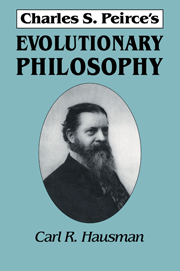1 - THE ORIGINS OF PRAGMATICISM
Published online by Cambridge University Press: 07 January 2010
Summary
The 1877 and 1878 articles “The Fixation of Belief” and “How to Make Our Ideas Clear” are generally thought to initiate pragmatism, which Peirce would later call pragmaticism. Both are parts of a series of six papers intended for a book called “Illustrations of the Logic of Science.” They represent Peirce's concern with proposing a theory of inquiry based on his conception of experimental science. At the time they were written, Peirce regarded it as his mission to incorporate the logic of experimental methods into philosophy. An explicit expression of this aim can be found in his later writing where he aligns himself with “those few fellow-students of philosophy, who deplore the present state of that study, and who are intent upon rescuing it therefrom and bringing it to a condition like that of the natural sciences” (5.413). Thus, Peirce's discussion of the way beliefs may be fixed and of the proper criterion for clarifying ideas is a means to this longerrange goal. The consequences of realizing this goal imply the reinterpretation of traditional philosophical issues. Most of the issues so important to Peirce throughout his career will be seen to emerge within the context of his concerns in the 1877 and 1878 articles.
Before considering these articles, let me make two preliminary observations. The first is that I bypass four earlier essays, “On a New List of Categories,” “Questions Concerning Certain Faculties Claimed for Man,” “Some Consequences of Four Incapacities,” and “Grounds of Validity of the Laws of Logic.” Some key points in three of these will be taken up later in connection with semeiotic and with further consideration of Peirce's view of inquiry.
- Type
- Chapter
- Information
- Charles S. Peirce's Evolutionary Philosophy , pp. 20 - 56Publisher: Cambridge University PressPrint publication year: 1993



